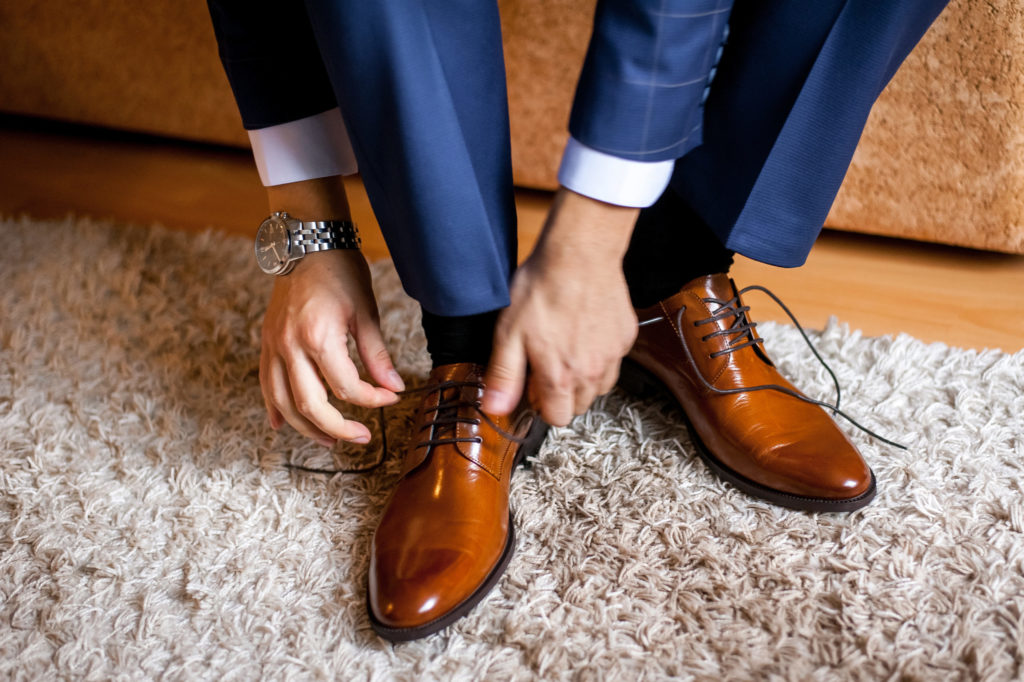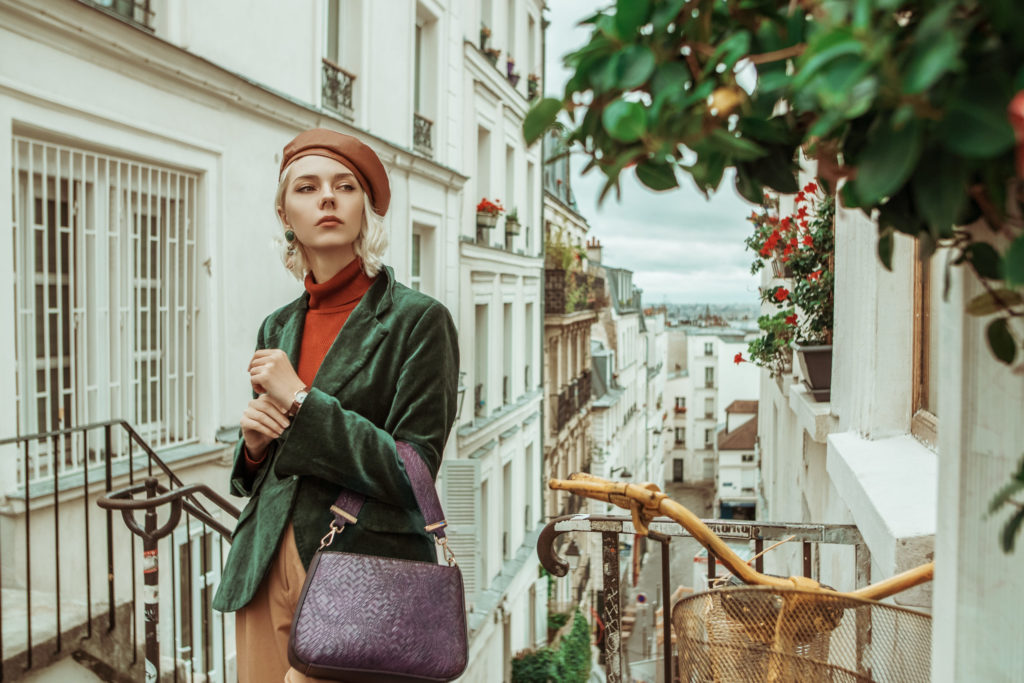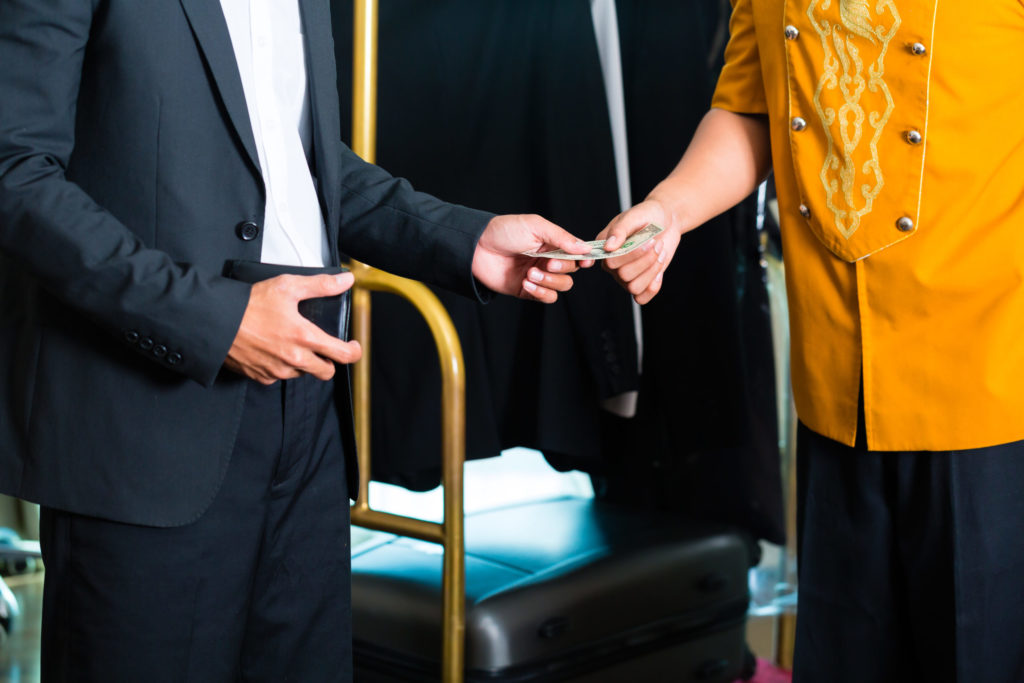
One of the best parts of traveling to a foreign country is the exposure to new languages, traditions, and cultures. It allows you to step out of your element and get a break from everything you’re accustomed to back home. However, you don’t want to neglect cultural norms, make a social faux pas, and embarrass yourself, a waiter, or new friends. Thankfully, Jaya Travel & Tours compiled a list of social etiquette rules to keep in mind when traveling.
Table of Contents
If You’re Visiting India…

Wear sandals or slip-on shoes so you can easily remove them indoors. This rule applies to many Asian countries in general, but if you plan on visiting India’s major attractions, like inside the Taj Mahal, you will be expected to remove your shoes.
Also, cows are considered sacred, so you will likely not see many beef options. However, many popular chain restaurants, like McDonald’s, have adapted their menu to include vegetarian options. Respecting these cultural norms will ensure that you have a fun and exciting experience in India!
If You’re Visiting Dubai…

Don’t be offended if a local of the opposite gender does not wish to shake your hand. This is a religious practice and quite common among Muslim majority countries. This cultural norm has been followed for years and should not be taken personally. Instead, simply smile and make eye contact when greeting someone.
Because of Dubai’s robust tourism industry, locals have become accustomed to seeing visitors in Western clothing. However, keep in mind they still expect you to dress modestly. For instance, swimsuits by the pool or beach are acceptable, but don’t expect to throw on a sheer cover up and make a quick stop to your hotel room. You may be asked by staff to wear something more appropriate. While visiting religious places like mosques, women are expected to wear abayas and cover their head as a sign of respect. Men are expected to do the same and wear kandura. Both these outfits are available at mosques for you to wear before entering the premises.
If You’re Visiting the Philippines…

Be aware of the concept of the word “hiya.” While there is some debate of the origin and true meaning, basically it relates to shame and shyness and causing someone to lose face. Filipinos may avoid a confrontation or other unpleasantness during a conversation in order to not cause shame to themselves or you. This may come across as being passive or shy but the reality is they are very considerate of the feelings of others. Keep this in mind and be respectful and polite when dealing with Filipinos, especially those in the service industry who you may encounter during your travels. Excessive eye contact or even tapping on the shoulder is considered to be rude, so do keep in mind these social etiquettes and you will get to experience the love the country has to offer.
If You’re Visiting South Africa….

Remember to bring a small gift when visiting someone. Gift-giving is common in many parts of the world, and South Africa is no exception. As a former British colony, you’ll find many remnants of English cultural norms here – including the tradition of giving a small gift. Afternoon tea is practiced here so you may consider a gift that would go well with tea, like chocolate, other sweets, or a bottle of wine if you’re visiting around dinnertime. Do keep in mind that politics is a touchy subject in Africa and you should only talk about it if you have complete knowledge about the situation in the country.
If You’re Visiting Pakistan…

Avoid displaying the soles of your feet/shoes for any reason. The bottom of your feet is considered the dirtiest part of your body. Therefore, it’s insulting to show them to someone. When sitting cross-legged for example, make sure not to prop your leg up so that the sole of the foot is pointed at the person next to you. While laughing out loud might be an indication of you having fun, it is considered to be disrespectful when in public in Pakistan. Household staff are considered to be an important part of the family unit so it is expected of you to tip them before you leave after a dinner or lunch. Salaam is considered to be the acceptable form of greeting if you are meeting someone for the first time. While Pakistan might have quite some cultural norms and social etiquette rules in place, it is a culturally vibrant country to pay a visit to.
If You’re Visiting France…

Make sure to greet store clerks when entering with a friendly “Bonjour!” and “Au revoir!” when leaving. Many shops in France are independently owned. By not greeting the shopkeeper, you’re basically saying you don’t care to acknowledge the pride and hard work they put into their business. Also, don’t expect to rifle through clothing racks as you would in the US. Your shopkeeper is more than happy to help you find what you’re looking for. And because they know their store better than anyone, it’s polite to let them act as your personal shopper. It is a socially acceptable cultural norm in France to dress formally on the street. This is a sign of showing respect to the people around you. Like many cultures, it is a social etiquette rule to bring a little gift if you are visiting someone. It can be something very modest like a bottle of wine or a bouquet of flowers. The French are often perceived as snobbish or snooty, but the truth is they adhere to a strict social code known as “la politesse.”
If You’re Visiting Japan…

Expect to bow when greeting someone or saying goodbye, even at stores. Sometimes the Japanese will perform a handshake because they know it’s the Western way. Wait to see what the person you’re greeting does first and follow suit – just don’t bow and shake hands at the same time. It will make everyone involved feel awkward. Like India, you will most likely be expected to remove your shoes indoors and slippers will likely be provided. Some places even have designated slippers for restrooms! Like many other countries, exchanging gifts is another cultural norm that the Japanese follow. However, do bear in mind that gift sets of four should be avoided because the number sounds very similar to the Japanese word for “death”.
If You’re Visiting Brazil…

Get ready for a warm greeting. Brazilians are open, friendly people who love to embrace friends and show affection with a physical touch. Don’t be surprised if they ask personal questions. It’s not meant to be rude. It’s just their way of getting to know you better and showing interest in your life. Brazilians tend to be the life of the party. However, it is extremely rude to get drunk in a social setting where you barely know anyone. A few cultural norms to follow and voila! You get to experience the fun and frolic Brazil has to offer.
If You’re Visiting China…

Feel free to burp after eating! While this custom is the exact opposite of good manners in Western society, in China this social etiquette is seen as a way of respecting the cook. You liked their food so much, you ate a lot and filled up. With that being said, don’t try to compliment your chef or server with a tip. While tipping is customary in America, it’s rude in China. If you try to offer your server a tip, you’re basically saying you don’t think the employer values their work as an employee. If unsure, it’s better to ask ahead of time to avoid embarrassment. While bargaining might be a common practice in any country, China frowns upon this practice as it is seen as a means to disrespect the vendor and the hard work they put in.
Social Etiquette for Anywhere…
Think before you take a selfie! Many places, like museums and monuments, strictly prohibit gadgets like selfie sticks. Other places don’t feel the need to state that selfies are prohibited because it’s common sense. As a traveler, always use common sense and good judgment. You don’t want to be Instafamous in a bad way. Not only will you be embarrassed, you could be fined for showing disrespect. While traveling is fun and exciting, it is very important to follow the cultural norms and social etiquette rules of the country you are visiting.
Explore More With Jaya!
When you’re ready to see the world, call Jaya! Our customer service representatives are standing by to speak to you, and happy to answer any questions you may have about local customs or package details. Call or go online to get your free quote today!







